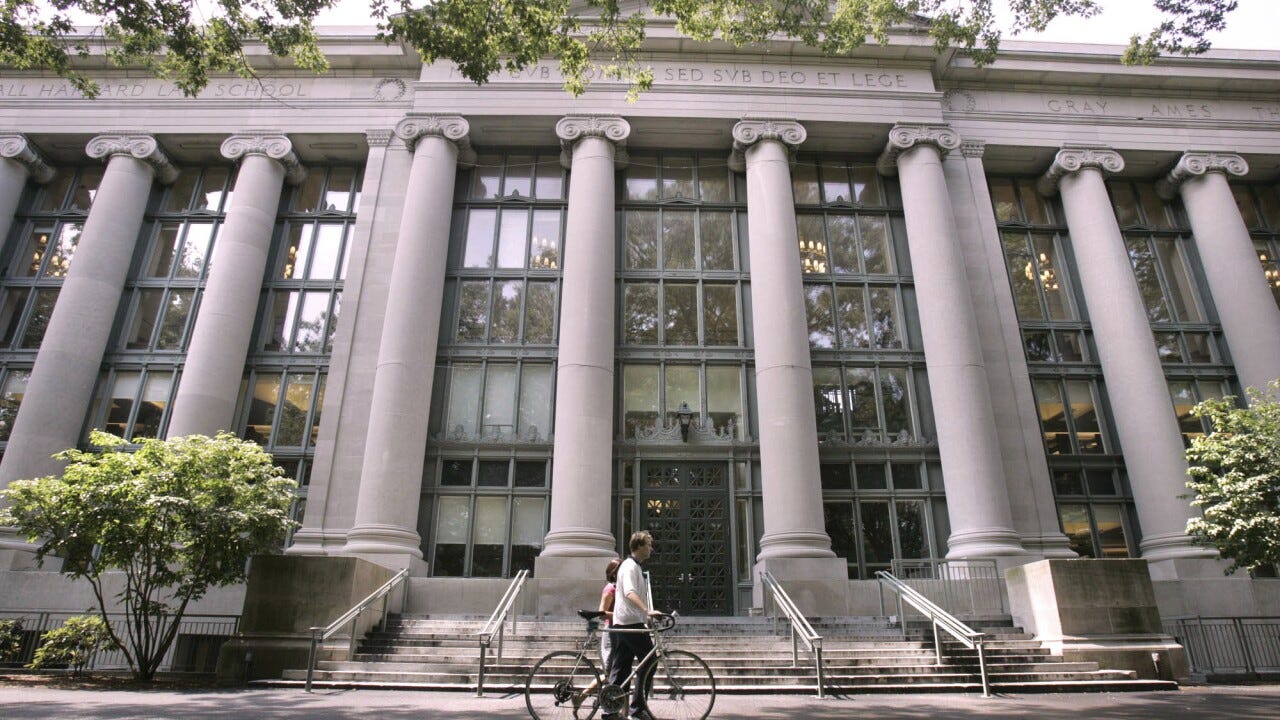Two big cases underway over Trump's higher education policy. Here are the key takeaways

BOSTON ― A federal courthouse was the epicenter of the legal world on July 21 as federal judges heard arguments in two cases surrounding the Trump administration’s efforts to revoke federal funding from Harvard University and to deport foreign-born student protesters for pro-Palestinian activism.
In courtroom 18 at the John Joseph Moakley U.S. Courthouse, U.S. District Judge William Young heard closing arguments in American Association of University Professors (AAUP) v. Rubio. The organization's chapters at several universities, as well as the Middle East Studies Association, sued Secretary of State Marco Rubio in March over what it described as an "ideological deportation policy" the administration was using to retaliate against noncitizens for pro-Palestinian speech.
Steps away, U.S. District Judge Allison Burroughs heard oral arguments in Harvard’s lawsuit against the administration over the more than $2.5 billion in federal funding it pulled from the school, citing its alleged inaction on antisemitism.
The First Amendment lies at the heart of both cases, which could have significant implications for the future of higher education and free speech in the U.S.
Here are key takeaways from the trials.
Research, civil rights and lives are at stake, attorneys say
Harvard’s attorneys argued that the loss of federal funding would significantly damage the school's ability to conduct research that serves a public benefit while not meaningfully addressing antisemitism, NPR reported.
The Trump administration, on the other hand, said Harvard’s Jewish students are harmed by the school's alleged inaction on antisemitism, which it has said amounts to a violation of federal civil rights law.
The Knight First Amendment Institute at Columbia University, along with co-counsel Sher Tremonte law firm, sued Secretary of State Marco Rubio and the Trump administration on behalf of the association’s chapters at several universities, including Harvard, and the Middle East Studies Association in March.
In AAUP v. Rubio, attorneys from the Knight First Amendment Institute at Columbia University and Sher Tremonte law firm argued that the Trump administration’s “ideological deportation policy” affected not only the activists who have been arrested thus far but created a chilling effect on the free speech of noncitizen students and faculty.
The government’s attorneys disputed the existence of such a policy. If it did exist, lawyer William Kanellis said, “you’d see many more arrests.”
Judges questioned some arguments
Both judges were skeptical of some of the arguments attorneys attempted to make in their courtrooms.
The notion that the government has the authority to slash Harvard’s federal funding for any reason was a “major stumbling block for me,” Burroughs said. She said there would be “staggering” implications for constitutional law if the government had the power to make such decisions “for reasons oriented around speech.”
Burroughs also questioned how revoking Harvard’s federal grants contributed to the government’s stated objective of combatting antisemitism at the university, as the Harvard Crimson reported.
Young, meanwhile, appeared skeptical of the AAUP's argument that the Trump administration created and implemented a new “ideological deportation” policy.
He also questioned the plaintiff’s arguments surrounding Canary Mission, an organization that says it “documents individuals and organizations that promote hatred of the USA, Israel and Jews on North American college campuses and beyond.” The plaintiff’s attorneys characterized it as an extremist group the government relied upon to identify noncitizens for investigation and arrest.
Young was skeptical of the attorneys’ characterization of the group and said it’s “perfectly appropriate for the government to take leads from any source.”
First Amendment issues at the heart of both cases
Alexandra Conlon, a representing the plaintiffs in the deportation case, said that by revoking visas and green cards based on noncitizens’ pro-Palestinian activism, the federal government was “systematically violating the First Amendment” and seeking to chill speech it disagrees with.
On the first day of the trial, Justice Department attorney Victoria Santora said the First Amendment applies to both citizens and noncitizens alike. But she later backtracked to say “there are nuances to the First Amendment,” Politico reported.
Department of Justice attorney Ethan Kanter continued that argument July 21, saying noncitizens do not have First Amendment rights to the same extent as U.S. citizens. While they may have such rights in some capacity, he said, they are “context dependent and in relation to the compelling government interest at play.”
Lawyer Steven P. Lehotsky, representing Harvard in the funding lawsuit, said the administration’s actions against the university reflect a “blatant, unrepentant violation of the First Amendment,” the Harvard Crimson reported.
Administration's moves are 'part of a broader attack'
Ramya Krishnan, a Knight First Amendment Institute attorney representing the AAUP in the deportation case, said both that case and the one over Harvard's federal funding were part of the Trump administration's higher education "power grab."
“These are part of a broader attack on higher education in this country in weakening the independence of these institutions, in undermining them as a site for discourse and intellectual inquiry," she said, "and I think that people should be very worried about that.”
The Trump administration has accused schools of engaging in "exploitative and unlawful practices" and said its steps to overhaul higher education would "rebuild public trust" in such institutions.
Burroughs said she would issue an opinion in the Harvard case soon after oral arguments concluded on July 21, the Harvard Crimson reported. The school has requested a ruling by Sept. 3, which is its deadline for submitting paperwork to close out its federal grant funding.
Young did not offer a timeline for issuing his opinion in the deportation case.
BrieAnna Frank is a First Amendment Reporting Fellow at Paste BN. Reach her at bjfrank@usatoday.com.
Paste BN's coverage of First Amendment issues is funded through a collaboration between the Freedom Forum and Journalism Funding Partners. Funders do not provide editorial input.